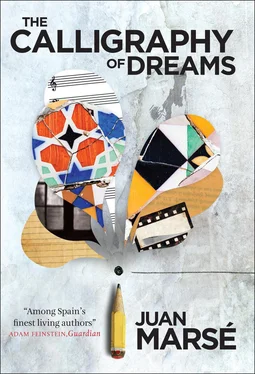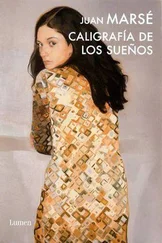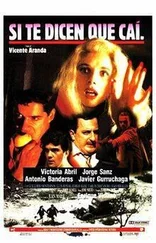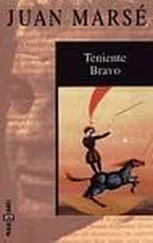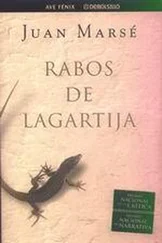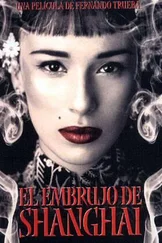“The adoption formalities are very expensive, and his family can’t afford them at the moment, Señor Benito,” his grandmother is saying. “They’ll do it as soon as possible.”
The teacher looks worried, and Ringo does not take his eyes off him. Every so often he sees him take a deep breath, puffing out his chest with fake concern, and whenever he does that, the red spider grows huge and threatens to start moving its legs, as if it were about to climb the blue shirt. He’s never seen anything like it, this spider crawling up the teacher’s shirt! Señor Benito explains wearily that this morning he has had to put on the uniform and attend a Falangist meeting in El Vendrell. The red beret folded on his shoulder looks a little faded and stiff, but apart from that he is dressed extremely carefully, wearing black patent leather shoes, his hair oiled. He is smoking a very thin, bent, aromatic roll-up cigarette.
“It’s a difficult matter,” he concludes. “As long as he has not been formally adopted, here in class he will have to be called — I’m sorry to have to say this, Tecla — but he will have to be called by his biological patronymics …”
“Do you have to use such … ugly, strange words in front of the boy?”
“Let’s see if you understand me. I’m talking about fulfilling a simple bureaucratic formality. And besides, I’m not sure, but I suspect somebody is trying to get away with something here … I’m afraid that from what I’m hearing there’s been a clear breach of the father — son relationship, a dereliction, an abdication of identity, shall we say …”
“You’re just trying to confuse me with your big words! The boy has had no problem with his family names at school in Barcelona!” She snorts, but then controls herself and speaks more softly. “Well, I don’t know, there must be a way … what can we do, Señor?”
“It’s up to you to decide, Tecla. Go home and think it over calmly.”
*
She has made up her mind before she gets home: this child cannot spend three or four months running wild, he has to go to school no matter what, using his real family names or those he’s been given. But how is she going to explain to him that he has four surnames rather than two, and why?
Sitting in a chair by the hearth staring into the flames, the grandmother silently evokes the family demons that have led to so many mishaps: if twelve years earlier her son and Berta hadn’t preferred the city and the reckless joys of the Republic to the peace and tranquillity of this tiny village; if in Barcelona Pep had not got mixed up in politics; if poor Berta had not lost her child at birth, if she had not taken that taxi as she left the La Maternidad hospital in floods of tears, if the doctor had waited another day to tell her she could not have any more children … Chance had intervened at almost every turn, and it was happening again: if she hadn’t been kept in Barcelona because of her job, Berta would now be explaining to the boy, with great tact and sweetness (from the start, waiting to see him reach puberty, she had carefully chosen the moment and exactly what she would say) who it was who brought him into the world ten years earlier, what mysterious design led that taxi to the door of the hospital just as … But Berta is not here, and the boy is asking questions, and the moment to tell him has arrived. A short while before, when she heard him moving about upstairs in his bedroom, helping his grandfather store the winter melons under the bed, she had quickly lit the fire in the hearth despite the heat. This is not just to cook cabbage and potatoes in the blackened pot, but because she knows her grandson likes above all to stare into the flames as dusk falls, in winter or summer. By the time he comes down and sits on the kitchen floor she has already decided what she is going to say to him.
“Today, if you promise not to tell anyone, I’m going to let you into a secret. You were going to be told anyway sooner or later. Don’t be frightened, it’s nothing bad. Now listen.”
Despite the magnetic effect of the Mexican moustache, the words his grandmother speaks in a voice that is now softer, more affectionate, and strangely childlike, are a ghost story that is not in the least bit frightening, a tale full of twists and turns, told with all kinds of hesitations and evasions. For the very first time a confused series of vignettes is paraded in front of his eyes: a taxi roaming the streets of Barcelona in the rain, a doctor and a nun attending a young woman in labour in a ward in La Maternidad, a shack in a Sarriá shanty-town where another young mother is also about to give birth, one boy who comes into the world arse first, and another who leaves it headfirst, the first mother delivering a dead baby, the second mother dying as she brings forth the newborn the wrong way round. Now for a moment we’re going to imagine, adds the grandmother, just for a moment (he can already see it: in an explosion of light and blood, first the feet appear, small and wrinkled as currants, then the legs, and finally the little arse) that the boy who came backwards into the world … is you. Don’t you sometimes imagine you’re a Red Indian with one of your mother’s garters round your head and with your face painted? Well now we’re going to imagine that you are the boy who came arse-first into this world, and that, at the moment you are born, your mother dies, because that is what destiny has ordained … And that taxi which has been going up and down the streets of Barcelona in the rain without anyone hailing it, is that also because destiny has so ordained it? In the entrance to La Maternidad, a nun and a nurse are saying goodbye and giving some final words of advice to the mother who is going home after losing her baby. Her husband, who is shielding her from the rain under an umbrella, sees the taxi going past, and raises his arm to stop it … She has always said he saw it first because even though it was daytime it had its headlights on, and that caught his attention. Well, the long and short of it is that they got into the taxi. And who do you think the driver was? As chance would have it, it was the husband of the lady who had died in childbirth a week earlier. And what happens as he is taking the unhappy couple home, with her weeping in her husband’s arms because not only has she lost her child, but she has been told by the doctors that she cannot have any more? What happens is that the taxi driver, hearing her crying and bemoaning her loss, cannot help but comment on his own misfortune. The sad coincidences of life! she said he said, and then he told her that he too had suffered the loss of a loved one because of a tragic birth, except that in his case the opposite had happened, and it was his wife who died, leaving him with a baby … And as Berta herself has told it a thousand times, she went and asked him: why don’t you take me to see the child? Please, I beg you, and so the driver feels sorry for her and changes his route and takes the couple to see the baby, who is being looked after by some relatives, although they are very sorry and cannot keep him. And once they are there, Berta lifts the baby from the cot and holds him in her arms for the very first time …?
“And that was that, there was no way she would let go of you,” his grandmother concludes. “They agreed that Berta would keep you only for a while. As a wet nurse … Do you know what that means? Well, a year went by, and then another, and another, and the situation dragged on, and that’s how things stand now. So as you can see, the fact is you have two mothers. My word, but you’re a lucky thing, aren’t you? Don’t you know it’s a blessing to have a mother in heaven? You’re a blessed child, that’s what you are, a child who’s been blessed! Because that man could not have raised you, and you would have ended up in the foundlings’ hospital for sure, so the best thing you can do is give thanks to the heavens for being such a blessed child …” She studies his face, and adds: “Or are you still not convinced? How about if tomorrow I sew you a football from a pair of your grandfather’s old corduroy trousers? Come on, let me see your face … It’s alright, if you feel like crying, let it out.”
Читать дальше
